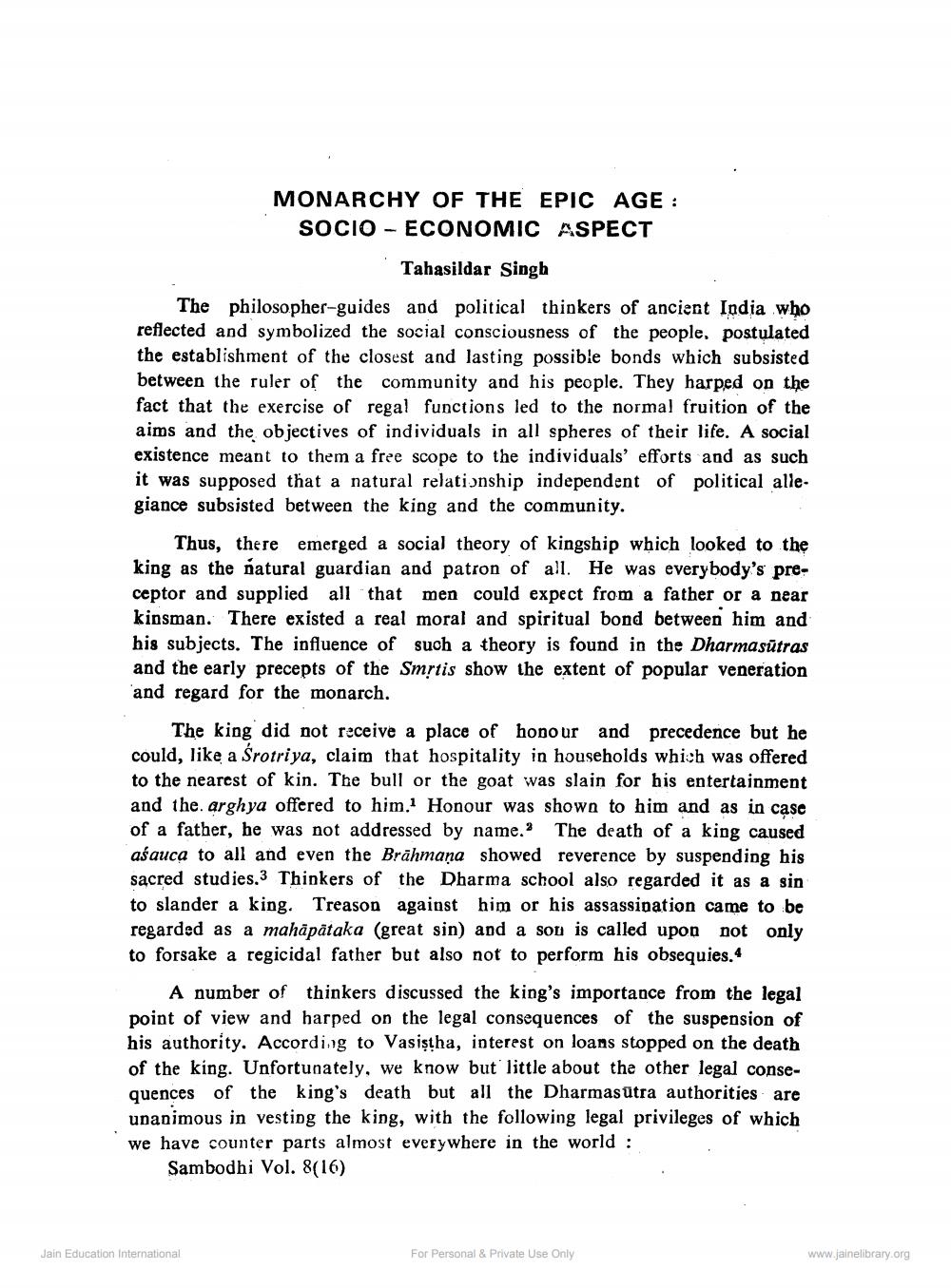________________
MONARCHY OF THE EPIC AGE: SOCIO-ECONOMIC ASPECT
Tahasildar Singh
The philosopher-guides and political thinkers of ancient India who reflected and symbolized the social consciousness of the people, postulated the establishment of the closest and lasting possible bonds which subsisted. between the ruler of the community and his people. They harped on the fact that the exercise of regal functions led to the normal fruition of the aims and the objectives of individuals in all spheres of their life. A social existence meant to them a free scope to the individuals' efforts and as such it was supposed that a natural relationship independent of political alle. giance subsisted between the king and the community.
Thus, there emerged a social theory of kingship which looked to the king as the natural guardian and patron of all. He was everybody's preceptor and supplied all that men could expect from a father or a near kinsman. There existed a real moral and spiritual bond between him and his subjects. The influence of such a theory is found in the Dharmasutras and the early precepts of the Smṛtis show the extent of popular veneration and regard for the monarch.
The king did not receive a place of honour and precedence but he could, like a Śrotriya, claim that hospitality in households which was offered to the nearest of kin. The bull or the goat was slain for his entertainment and the. arghya offered to him.1 Honour was shown to him and as in case of a father, he was not addressed by name. The death of a king caused aśauca to all and even the Brahmana showed reverence by suspending his sacred studies.3 Thinkers of the Dharma school also regarded it as a sin to slander a king. Treason against him or his assassination came to be regarded as a mahāpātaka (great sin) and a son is called upon not only to forsake a regicidal father but also not to perform his obsequies.4
A number of thinkers discussed the king's importance from the legal point of view and harped on the legal consequences of the suspension of his authority. According to Vasistha, interest on loans stopped on the death of the king. Unfortunately, we know but little about the other legal consequences of the king's death but all the Dharmasutra authorities are unanimous in vesting the king, with the following legal privileges of which we have counter parts almost everywhere in the world:
Sambodhi Vol. 8(16)
Jain Education International
For Personal & Private Use Only
www.jainelibrary.org




